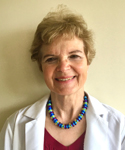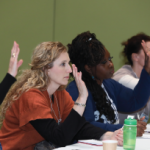Neuro-rheumatology is a fast-growing field. Better testing and imaging have increased recognition of once-infrequent diagnoses, such as neuro-sarcoidosis and amyloid beta-related angiitis. Concurrently, the rapid expansion of immunotherapy options to treat cancer and their untoward neurological side effects have increased the frequency of referrals to both neurologists and rheumatologists. Identifying and treating neurologic manifestations of…









